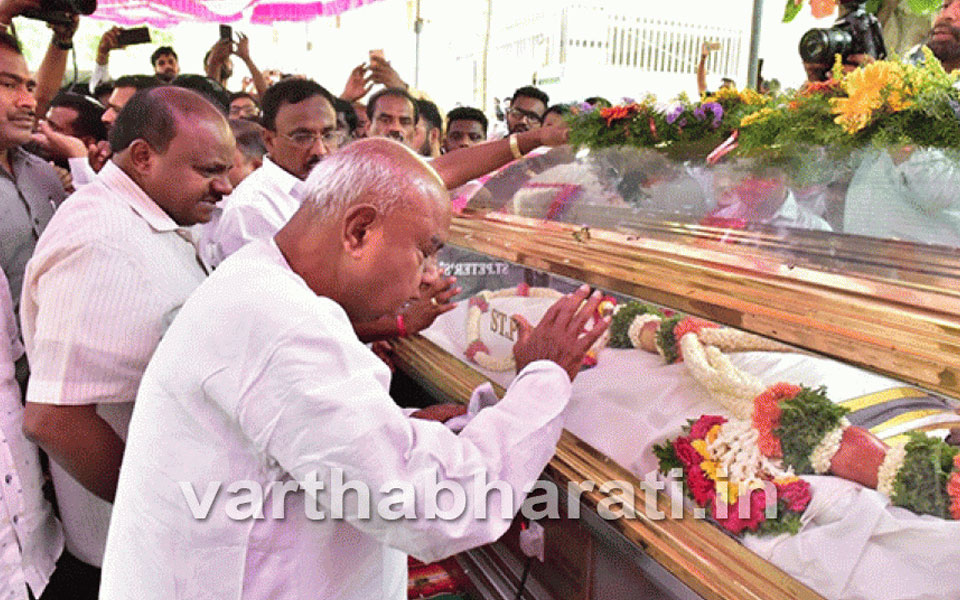Colombo: The mortal remains of nine out of 10 Indians killed in the massive Easter Sunday bombings in Sri Lanka have been sent to India, officials announced on Wednesday.
According to the authorities, 10 Indians have lost their lives in Sri Lanka's worst terror attack that killed at least 359 people.
India's High Commission here released the details of the repatriation of mortal remains of Indian victims in a series of tweets.
The victims include S R Nagaraj, H Shivakumar, K G Hanumantraiyappa, K M Lakshminarayana, M Rangappa, V Tulasi Ram, A Maregowda, H Puttaraju and R Lakshman Gowda, according to the Indian mission.
Four separate planes carrying the mortal remains of the nine Indians landed in Bengaluru and Hyderabad.
So far 60 people have been arrested in connection with the attacks, police spokesman Ruwan Guansekera said, adding that more than 500 people have been injured in the bombings.
Police said that as many as 34 foreign nationals who lost their lives have been identified.
Of them, 10 are from India, three from Denmark, one each from Japan, the Netherlands, Portugal, Bangladesh, Spain, two each from China, Saudi Arabia, Turkey, six from the UK, two holding the US and the UK nationalities and two holding Australian and Sri Lankan nationalities, officials said.
Additionally, 14 foreign nationals are unaccounted for and could be among the unidentified victims at the Colombo Judicial Medical Officer's mortuary, police said.
Sixteen foreigners injured in the attacks are receiving treatment at the Colombo National Hospital and private hospitals in Colombo.
The Islamic State terror group has claimed responsibility for the devastating Easter blasts in Sri Lanka and identified the suicide bombers who were involved in the attacks.
Seven suicide bombers carried out a series of devastating blasts that tore through churches and luxury hotels in Sri Lanka on Easter Sunday.
Let the Truth be known. If you read VB and like VB, please be a VB Supporter and Help us deliver the Truth to one and all.
Dubai: Smoke was seen rising from an area near the United States Consulate in Dubai, according to witness accounts cited by Reuters.
There was no immediate official confirmation on the extent of damage or whether there were any casualties in the incident.
Earlier, the US embassy in Riyadh, Saudi Arabia’s capital, was also attacked. Authorities reported damage to the premises, but no casualties were recorded.
The developments come amid heightened tensions in the region, with Iran continuing to target US interests in the Middle East following deadly attacks launched on Saturday by Israel and the United States.
Near US embassy in Dubai pic.twitter.com/z5VTZNVxNO
— Sahil Shah (@thesahilsshah) March 3, 2026





